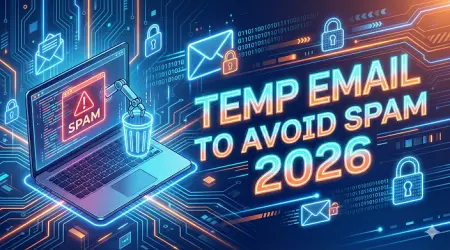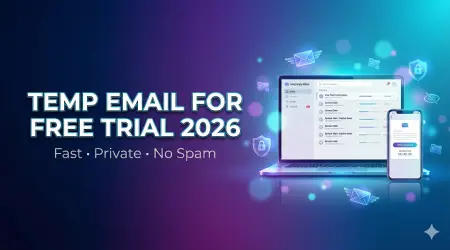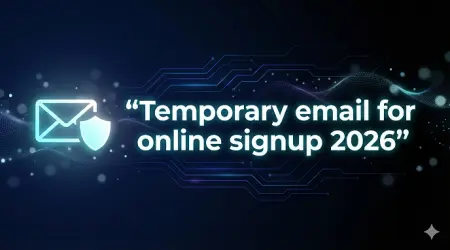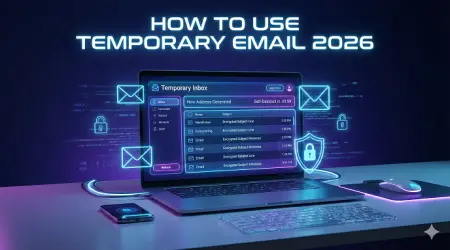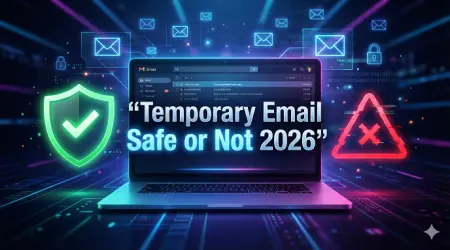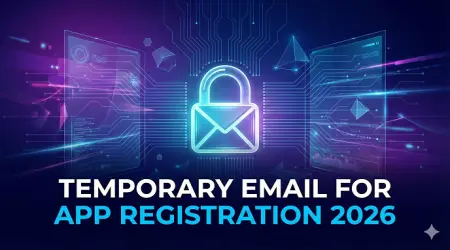
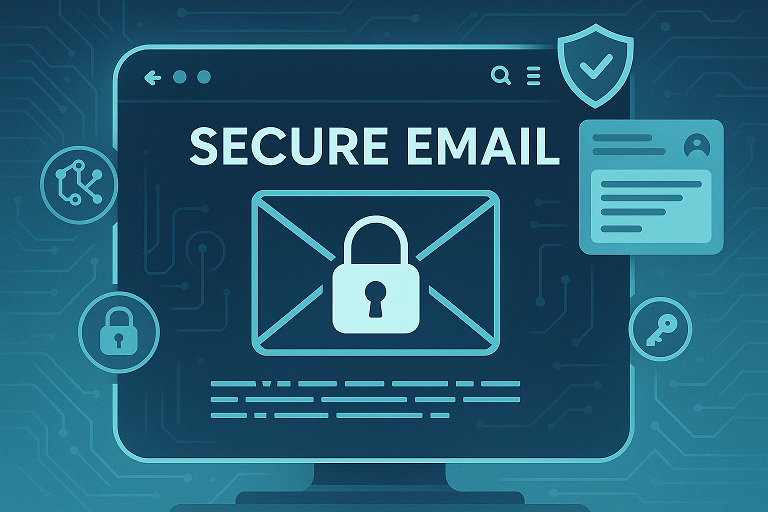
What Is the Safest Type of Email? (2025 Ultimate Security Guide)
What Is the Safest Type of Email? (2025 Ultimate Security Guide)
Digital communication will be quicker and more convenient than ever in 2025 but also more susceptible. Millions of emails are intercepted, spoofed or leaked every day. Which kind of email is the most secure to use in order to preserve your privacy and data?
We should understand what an email service is considered to be truly safe, how encryption works, and which are the providers that are taking the lead in the privacy protection.
Understanding Email Security Basics
Email security can be defined as technologies, policies and best practices that ensure that email accounts and data are not accessed unlawfully. The old email systems such as Gmail or Yahoo were created in the comfort of things and not the privacy.
Common email threats include:
- Phishing attacks: Diversions by unscrupulous emails and duping people into disclosing passwords or credit card information.
- Spoofing:).Attackers masquerade with trusted contacts.
- Data leaks: Hackers stealing sensitive data in the servers.
- Man-in-the-middle attacks: Emails are picked on their way.
Only a truly safe email system can reduce these risks with encryption, authentication and privacy controls to users.
How Email Encryption Works
Email encryption: This is whereby a readable information is transformed into a code that can only be deciphered by authorized recipients.
The two main types are:
- Transport Layer Enhanced Security (TLS): Transmit the data between email server encrypt it.
- End-to-End Encryption (E2EE): Guarantees the safety of content between the sender and the receiver even my emailing company.
This is possible using such technologies as Pretty Good Privacy (PGP) and Secure/Multipurpose Internet Mail Extensions (S/MIME).
In a word or two - E2EE makes sure that even your email provider cannot even read your messages.
Authentication Protocols That Protect Emails
Beyond encryption, safe email systems rely on authentication protocols to prevent domain spoofing and phishing.
- SPF (Sender Policy Framework): an authentication of emails verifies: are they sent through an approved mail server.
- DKIM (DomainKeys Identified Mail): This is an identification that is added to talk of the authenticity.
- DMARC (Domain-based Message Authentication, Reporting, and Conformance): DMARC that ensures facile compatibility that exists between SPF and DKIM to enforce enhanced validation.
The standards foster confidence between mail servers and spam and impersonation.
The Most Secure Types of Email Services in 2025
Privacy is not observed equally by all email providers. These are just some of the most reliable encrypted email services that have made security and transparency a top priority.
ProtonMail: Leader in Encrypted Email
ProtonMail is a company that is located in Switzerland and serves as one of the safest email platforms in the world. It offers:
- Zero-access encryption and end-to-end.
- Open-source codebase
- Swiss privacy legislation protection of user data.
- Self-destruction and anonymous registration.
Its user-friendly interface and mobile applications make it the right choice of those and companies who value confidentiality.
Tutanota: Privacy by Design
Service Tutanota is encrypted to the core - the subject lines, contacts and calendars. It is run on renewable energy and provides:
- Encrypted full-text search
- No ads or tracking
- Anonymous registration
- Open-source transparency
The emphasis on sustainability by Tutantota gives email security an ethical advantage.
StartMail and Skiff Mail: Privacy for Professionals
Professional users require a higher level of security and use StartMail (Netherlands) and Skiff Mail (USA).
StartMail has PGP encryption and custom domain support, and Skiff incorporates Web3 and decentralized storage.
Comparing Free vs. Paid Secure Email Services
| Feature | Free Email (e.g., Gmail) | Paid Secure Email (e.g., ProtonMail Plus) |
|---|---|---|
| Encryption | Partial (TLS only) | End-to-End Encryption |
| Data Privacy | Used for ads | Never tracked |
| Storage | Large but data-mined | Limited but private |
| Custom Domain | No | Yes |
| Support | Basic | Premium |
Why Free Email Isn’t Always “Free”
Free email services frequently sell the data of users to advertisers. Although there may be encryption on transit, your inbox can be scanned.
Benefits of Paid Email Providers
Paid services offer:
- Full encryption
- Better customer support
- No ads or trackers
- Protections on jurisdiction of privacy.
Features to Look for in a Safe Email Provider
When selecting a secure email company, it is important to take into consideration the following aspects:
- End-to-end encryption
- The second form of authentication is two-factor authentication (2FA).
- Zero-access architecture
- Independent security auditing.
- Open-source transparency
- Privacy jurisdiction in privacy respecting nations.
The Future of Email Security in 2025 and Beyond
Future development of email security will entail:
- Phishing detection using AI.
- Fingerprint, face ID authentication.
- Algorithms resistant to quantum computing.
- Identity verification based on blockchain.
Privacy will be a luxury no more, but it will be a digital requirement.
FAQs About Safe Email Services
Q1: What can be considered as secure about an email?
An email service is safe with the help of end-to-end encryption, tough authentication, and stringent privacy rules.
Q2: Is Gmail a safe email company?
Although Gmail is encrypted by TLS, it is not fully encrypted, which means that Google still has access to your information.
Q3: Is the use of encrypted emails totally confidential?
They are very safe, and even metadata such as sender and timestamp can be seen.
Q4: Is it possible to send non-encrypted users encrypted emails?
Yes, most of the providers provide password-protected links to non-users.
Question 5: What is the best free secure email?
The free version with ProtonMail is a good balance between privacy and user-friendliness.
Q6: Can emails be used to handle sensitive documents?
It is only when you are using a secure service (with end to end encryption) and have two factor authentication.
Conclusion – Making the Smart Choice for Your Inbox
So, what is the safest type of email?
The safest option is one that combines end-to-end encryption, zero-access architecture, and privacy-respecting jurisdiction—like ProtonMail or Tempmaili.com.
